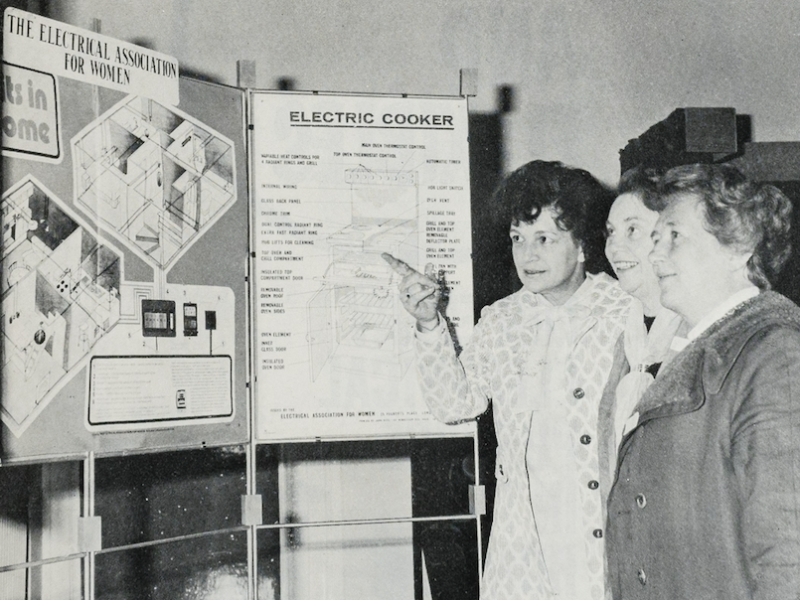Giving women the power
IN the 1920s a massive change happened, as electricity started coming into our homes for the first time.
It is almost impossible to imagine what life was like before then, and how much hard work was needed to run a household – the lion’s share of it being done by women.
A hundred years ago, a new organisation was formed – the Electrical Association for Women (EAW).
This aimed to effect change in several ways: to educate women about how to use electricity, to provide new career opportunities for females, and to inform engineers about the realities of domestic work, influencing design and production.
As the Institution of Engineering and Technology (IET) states: “Essentially, it brought engineers and housewives together, acting as a liaison between engineers who did not understand what women wanted and housewives who could not follow the technical language.”
The EAW’s slogan was ‘Emancipation from Drudgery’, because using the kinds of electrical devices we take for granted today, from lights to ovens, vacuums and washing machines, took a lot less time and effort than previously.
The first local branch was set up in Glasgow in 1925 and by the 1930s there were over 80, including international branches in Trinidad and Tobago, the Netherlands and New Zealand.
There was also a branch in Downend.
As the IET website notes: “The Bristol branch successfully built an ‘All-Electric House’ for less than £1,000.
“The project aimed to encourage women to ask that electric equipment should be included in the price of a house and to stimulate a greater interest in general design, construction and wiring.
“A number of pamphlets and plays described the workings of electrical apparatus and phenomenon of electricity.”
Engineer Mabel Mathews founded the organisation in 1924 to encourage women to “work light”, by understanding and using this amazing new technology.
The EAW’s advocacy work included campaigning for more practical solutions and layouts, including putting more electrical sockets into homes, and the local ‘All-Electric House’ was a useful advocacy tool in this.
Were you a member of the Electrical Association for Women?
The organisation closed in 1986. The Downend branch continued until 2020 as a social club, the Willow Ladies Club.
The centenary celebration, Electric Dreams Festival 2024: Celebrating women in energy, is taking place across the UK, including the Electricity: Emancipating Women exhibition at the Stradling Collection, 48 Park Row, Bristol, which focuses on the ‘All-Electric House’.
You can contact CHAP at big.gin@talktalk.net or 49 Overnhill Road, Downend, Bristol BS16 5DS.
Helen Rana


